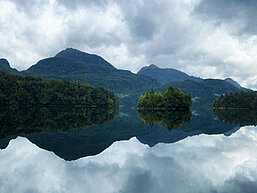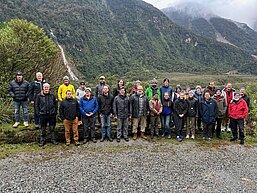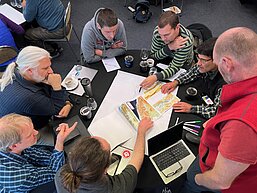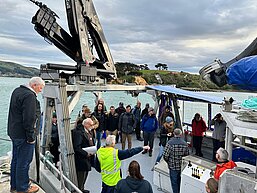New Zealand fjord sediment records of Southern Hemisphere climate change and carbon cycling
Project Acronym: FACET| State: Workshop Held
Fjords play a critical role in the global carbon cycle by storing large quantities of terrestrial organic carbon. It is estimated that, though they occupy <0.1% of Earth’s surface, annual fjord carbon burial accounts for 11% of the total annual global marine sequestration. Globally, these systems are a significant contributor to glacial-interglacial changes in atmospheric CO2, but very few continuous records that capture the entire sedimentary sequence from peak glacial to peak interglacial conditions have been compiled. The lack of well-dated records limits our understanding of key sedimentary and biogeochemical processes and the impact that fjord systems have on the global system across key transitions from glacial to interglacial climates. New Zealand (NZ) fjord basins are ideal targets for scientific drilling: they have high sediment accumulation rates (>3mm/yr), interglacial and glacial sediments spanning at least the last ~20,000 years, accumulate marine and terrestrial sediments that enable paleoclimate proxy redundancy, have abundant terrestrial macrofossils for radiocarbon dating and host environmental processes that are directly linked to climate. Geophysical and hydrographic surveys, combined with targeted sediment sampling, have been undertaken to determine the geometry and thickness of Fiordland sedimentary basins, identify primary sediment transport mechanisms, and evaluate key environmental controls on carbon cycling. Yet, our understanding of processes is limited by sedimentary records that only span the last few thousand years or are floating stratigraphies that represent a “snapshot” of late Pleistocene sedimentation. The short temporal perspective prevents us from determining how key climate change events, some forecast for our future, influence fjord circulation, biogeochemical cycling and carbon sequestration.
Keywords: Fjords, carbon burial, Southern Hemisphere, climate change, source-to-sink, hazards

Project Management
Project Details
Project Timeline
Workshop Held
27 Aug.- 2 Sept. 2023 in Otago, New Zealand




